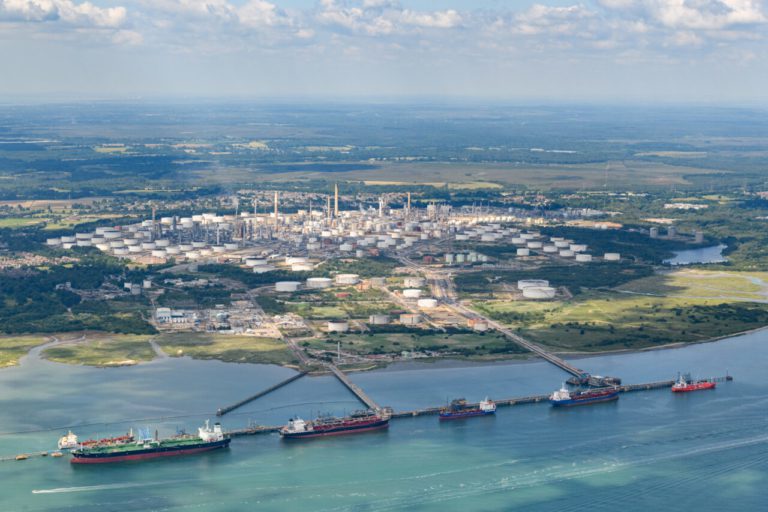
Energy security
In today’s Spring Budget (15 March), the Chancellor set out £20bn investment over the next 20 years aiming to store 20-30 million tonnes of CO2 a year by 2030 as part of his clean energy reset commenting: “Without government support, the average household energy bill would have hit almost £4,300 this year, which is why we stepped in to save a typical household £1,300 on their energy bills this winter.
“We don’t want to see high bills like this again, it’s time for a clean energy reset. That is why we are fully committing to nuclear power in the UK, backing a new generation of small modular reactors, and investing tens of billions in clean energy through carbon capture.
“This plan will help drive energy bills down for households across the country and improve our energy security whilst delivering on one of our five promises to grow the economy.”
Track 1 expansion
The chancellor also confirmed that two additional industrial clusters will be selected through track 2 of the government’s CCUS cluster sequencing process and an expansion of track 1 to allow for further CCUS projects to enter the selection process. The expansion of track 1 is a significant new development and a major boost to the industry, as it invests in the development of CCUS projects.
The announced investment has been welcomed by those representing a number of CCUS projects in the advanced stages of development, waiting for the green light from the government in order to secure financial backing.
Unveiling the financial package, the chancellor, Jeremy Hunt, told MPs that the fund “would support up to 50,000 jobs, attract private sector investment and help capture 20 to 30 million tonnes of CO2 per year” by 2030.
The funding will be used to drive forward projects like The Solent Cluster, which has the potential to capture up to 10 million tonnes of CO2 a year, the equivalent to taking 3.75 million cars off the road – a third of the government’s target.
Creating growth
The Solent Cluster is a cross-sector collaboration of international organisations with decades of proven expertise in carbon capture and storage and hydrogen technology. It aims to grow the regional economy, protect skilled jobs, and create new employment opportunities in the energy technologies and industries of tomorrow.
Welcoming the Chancellor’s funding announcement, Anne-Marie Mountifield, director of The Solent Cluster and chief executive of Cluster founding member, The Solent Local Enterprise Partnership, said: “The Solent Cluster team is pleased with the Chancellor’s announcement in Wednesday’s budget and, as we have the potential to capture and store a third of the government’s annual ambitions for CCS, the impact of this for the Solent region and beyond is significant.
“It will make a large contribution to attracting significant investment into levelling up the Solent region, as well as creating new jobs and growth.”
Forty percent of all industrial CO2 ever captured has been successfully captured by one of the Cluster’s founding members ExxonMobil. The Cluster is actively developing its own CCS solution, drawing on the global expertise of ExxonMobil at its site in Fawley, Hampshire.
Anne-Marie continued: “Through new hydrogen production facilities, the Solent can lead the way in creating low carbon fuels for the maritime industries, on which much of our region’s economic prosperity depends.
“We are currently awaiting the announcement of Track-2 cluster funding from the government as it works towards its requirement of reaching net zero emissions by 2050. This will enable us to deploy our decarbonisation plans which, as well as offering the prospect of lower carbon energy for homes, businesses, public buildings and transport, will also help decarbonise industries in and beyond the Solent region by capturing, processing and storing their emissions.
Government expects that support for Track-2 clusters may include access to capital support through the CCS Infrastructure Fund and Net Zero Hydrogen Fund, and revenue support mechanisms through technology-specific business models.
A step in the right direction
Commenting on the support for CCS, Richard Lum, Co-CIO at Victory Hill Capital Partners LLP, advisor to sustainable investment trust VH GSEO, said: “Today’s £20bn move by the chancellor to support carbon capture is a healthy step in the right direction, that will help ensure the UK continues to lead the world in applying this technology.
“The Government has recognised the need to do more to promote the reuse of the captured emissions, rather than only backing sequestration. Reusing these emissions could boost the economy by supplying certain sectors such as the food and beverage and agriculture industries with valuable and much needed carbon dioxide gas.”
VH GSEO is invested in the construction of two combined heat and power plants in Nottinghamshire, UK, which bring together gas-fired engines technology with a CCS system.

